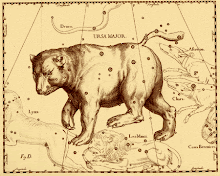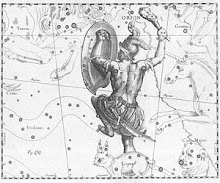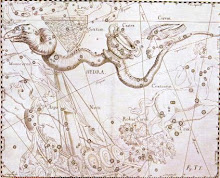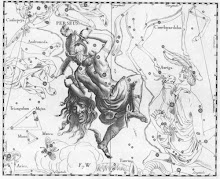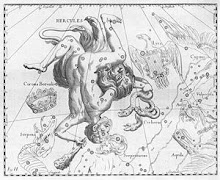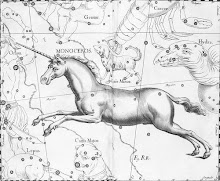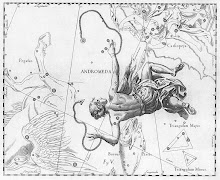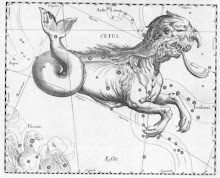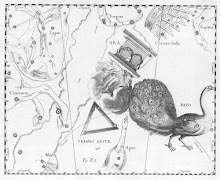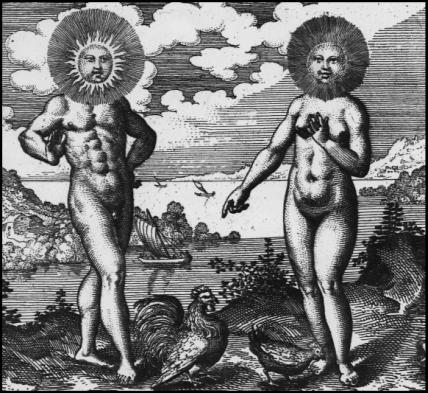BY
Affichage des articles dont le libellé est PHILALETHES The Fount of Chemical Truth. Afficher tous les articles
Affichage des articles dont le libellé est PHILALETHES The Fount of Chemical Truth. Afficher tous les articles
PHILALETHES The Fount of Chemical Truth.
THE FOUNT OF CHEMICAL TRUTH
BY
Philalethes
(The Hermetic Museum, Vol. II, by Arthur Edward Waite, 1893)
OUR Magistery consists of three parts: the first deals with the essential and substantial composition of our Stone; the second describes their manner of combination; the third the mode of chemical procedure. Our substances are "red ore," or matured Sulphur, and water, undigested Mercury, or "white ore." To these a vessel is added, a furnace, and a triple fire. In discussing their manner of combination, we have to consider their weight and the regimen. The weight is twofold, and so is the regimen: between them they produce the following processes—Calcination, Dissolution, Separation, Conjunction, Putrefaction, Distillation, Coagulation, Sublimation, Fixation, and Exaltation. The first two produce the black, viscous powder, by means of the "unnatural fire," a temperate, incomburent, and altering ignition. There is then a further change into a mineral water. The three operations Which follow are the result of the first and third fires, namely, natural and contra-natural, and "circulate" the substance, until the gross is separated from the subtle, and the whole is evenly tempered, the separated elements being then recombined, impregnated, and putrefied.
The five last operations are the result of natural fire which increases and gets stronger from day to day, purifying the putrefied substance of its dross, by continual ascensions and descents. This process is therefore called distillation, volatilization, ablution, imbibition, humectation of the earth, and is continued until the dryness gradually thickens the substances, and, finally, under the influence of coction or continued sublimation, induces fixation, the terminal point of which is exaltation, an exaltation which is not local, from the bottom to the surface, but qualitative, from vileness to the highest excellence.
These operations are sometimes called regimens; but there. are only two kinds of fire, the natural and the non-natural, the latter being employed to call out the activity of the former. Putrefaction precedes regeneration, and is caused by the strife of the two fires. That part of the work which is subsequent to putrefaction and conjunction, when the Sulphur and the water have become one, and also receive congelation, is effected by the natural fire alone.
The substances are our body (commonly styled Lemnian earth) and our water (our true rain water). Our water is the life of all things, and if you can by much toil obtain it, you will have both silver and gold. It is the water of Saltpetre, and outwardly resembles Mercury, while inwardly at its heart there burns purest infernal fire. Do not be deceived with common quicksilver, but gather that Mercury which the returning Sun, in the month of March, diffuses everywhere, till the month of October, when it is ripe.
Know that our Mercury is before the eyes of all men, though it is known to few. When it is prepared, its splendour is most admirable; but the sight is vouchsafed to none, save the sons of knowledge. Do not despise it, therefore, when you see it in sordid guise; for if you do, you will never accomplish our Magistery—and if you can change its countenance, the transformation will be glorious. For our water is a most pure virgin, and is loved of many, but meets all her wooers in foul garments, in order that she may be able to distinguish the worthy from the unworthy. Our beautiful maiden abounds in inward hidden graces; unlike the immodest woman who meets her lovers in splendid garments. To those who do not despise her foul exterior, she then appears in all her beauty, and brings them an infinite dower of riches and health. Our Queen is pure above measure, and her splendour like that of a celestial being—and so indeed she is called by the Sages, who also style her their quintessence. Her brilliancy is such as baffles imagination, and, if you would have any idea of it, you must see it with your own eyes. Our water is serene, crystalline, pure, and beautiful—though it can assume its true form only through the aid of our Art. In that form it is our sea, our hidden fountain, from which gold derives its birth by natural descent; yet it is also stronger than geld, and overcomes it, wherefore gold is united to it, and is washed in it, and the two together grow up into a strong hero, whom neither Pope nor Emperor can buy for a price. Hence you should, above all things, seek this water, by means of which (with the solitary addition of a clean and perfect body) the Stone may be prepared.
But it requires profound study to become acquainted with all the secrets of our sea, and with its ebb and flow. It took me 18 months, after I had discovered the spring of our water, to find the method of making it well forth, because I did not know the meaning of the fiery furnace of the Sages. When I discovered it, indeed, the sight which I beheld richly rewarded me for all my pains. I was then suddenly, as by a flash of inspiration, enabled to understand all the secret words and enigmas of the Sages. Our water is the fire which causes both death, and, through death, a more glorious life. Whoever discovers it has reached the autumn of his Magistery, as Nature will then (when the pure body has been put into it) perform all the other processes, and carry the substance onward to perfection through all the different regimens. This water, though one, is not simple, but compounded of two things: the vessel and the fire of the Sages, and the bond which holds the two together. So when we speak of our vessel, and our fire, we mean by both expressions, our water; nor is our furnace anything diverse or distinct from our water. There is then one vessel, one furnace, one fire, and all these make up one water. The fire digests, the vessel whitens and penetrates, the furnace is the bond which comprises and encloses all, and all these three are our Mercury. There are many kinds of fire (and of water) in our Magistery, but all these only represent different aspects of our Mercury.
There is only one thing in the whole world from which our Mercury can be obtained. It is like gold in essence, but different in substance, and if you change its elements you will have what you seek. Join heaven to earth in the fire of love, and you will see in the middle of the firmament the bird of Hermes. Do not confound the natures, but separate and re-combine them, and you will reign in honour all your life.
In the South-west there is a high mountain (very near the Sun), one of seven, and the second in height. This mountain is of a very hot temperature (because it is not far from the Sun), and in this mountain is enclosed a vapour or spirit, whose services are indispensable for our work. But it does not ascend, unless it is quickened, nor is it quickened unless you dig kneedeep on the summit of the mountain. If you do this, a subtle exhalation (or spirit) ascends, and is congealed by the air into drops of beautifully limpid water—which is our water, our fire, our vessel, and our furnace; not common Mercury, but the hot and moist liquid of most pure Salt, which we call Mercury, because in comparison with the Sun, it is immature and cold. If the Almighty had not created this Mercury, the transmutation of metals would be impossible, because gold does not tinge unless it be first tinged itself. Our Mercury is the beloved spouse of gold, and changes its body into a purely spiritual substance; gold loves it so, that for very love he dies, and is revived by his spouse, and she is impregnated by him, and conceives, and bears a most beautiful royal son. The whole knowledge of our Art consists in the discovery of this our sea; any Alchemist who is ignorant of it, is simply wasting his money. Our sea is derived from the mountain of which I told you above. The exhalation or white smoke which ascends there, will accomplish our whole Magistery. There is another secret which you should know if you wish to see your hope fulfilled, viz., how you are to dig a hole in the mountain, as its surface is impenetrable to ordinary tools, its dryness being such that it has become harder than a flint. But in the places of Saturn a small herb is found, called Saturnia, whose twigs appear dry, but in whose roots there is abundance of juice. This herb you should carefully take up with the roots, and carry with you to the foot of the mountain, and, with the help of fire, bury it beneath the mountain; its virtue will at once penetrate the whole mountain, and soften its earth. Then you may ascend to the summit, easily dig a hole knee deep, and pour in so much dry and viscous water, that it penetrates to where the herb lies buried, and makes it ascend as a fume, which carries upward with it the spirit of the mountain. This spirit is the strength of fire mingling with water, and dwelling in it. The spirit of Saturnia is the whitening fume, the vapour of the mountain is fire, and all these things are fire. Thus you obtain Saturnia, the royal plant and mineral herb, which together with fat flesh makes such a soup as to eclipse the richest banquets in the world.
Here is an enigmatic description of our water, which should in course of time and study, become plain to the diligent enquirer. There is the King (gold), and the water which is the King's Bath; our water is the vessel, inasmuch as our King is enclosed in it, and the furnace, inasmuch as our fire is enclosed in it, and our fire, inasmuch as the virtue or spirit of the mountain dwells in it, and the woman, inasmuch as it receives the vapour of the plant Saturnia; and as the dear friend of the Sun penetrates, whitens, and softens it, and causes it to emit its sperm. Then the fiery virtue which is in the water, begins to act on our body, wasting and mortifying it, until at length the innate heat of the Sun is roused into activity. Our Stone is called a little world, because it contains within itself the active and the passive, the motor and the thing moved, the fixed and the volatile, the mature and the crude—which, being homogeneous, help and perfect each other. We have already shewn that our object in adding matured Sulphur to crude Mercury (the same thing in different stages of development), is to shorten and accelerate the natural process. Gold is a hot and dry body; silver a frigid and humid one, Mercury the means of conveying tinctures. The body of the Sun is most highly digested, that of the Moon imperfect and immature, while Mercury is the bond by which these two contraries are united. Join the Moon to Mercury by means of proper heat, so that the two become one Mercury which retains its inward fire; then the Mercury will be freed from all dross and superfluities, and it will become transparent like the tears we shed, though not exactly perspicuous. If you then unite this purified Mercury to gold, in which is the Moon and fire, the hot and dry will love the cold and humid, and they will unite on the bed of the fire of friendship; the man will dissolve over the woman, and the woman be coagulated over the man, till the spirit and the body become one by commixtion. Continue the same operation (let the heaven descend to the earth) till the spirit puts on the body, and both are fixed together. Then our Stone will have obtained its royal virtue. For Mercury is the water of all metals, and they are digested in it. When vegetables are boiled in ordinary water, which is naturally frigid and humid, it partakes of their qualities, and is yet separable from them; so the pure Mercury, which is in all metals and minerals, is perfectly separable from the dross and foreign matter which has become mixed up with them; yet the different minerals and metals qualify the Mercury in the same way as the water is qualified by the vegetables cooked in it. There are these two differences between the Mercury and the water, that the water is not coagulated and fixed with the vegetables as our water is with the metals; and that, while the colour of common water is changed by anything boiled in it, Mercury retains its own colour and fluxibility, though its essence is qualified. Therefore the Mercury is effectual in the dissolution of the metal, and the metal in the coagulation of the Mercury; and as, in the dissolution, the form and colour of the metal is latent in the form and colour of the Mercury, so, in coagulation, the form and colour of the Mercury is hidden in the form and colour of the metal; neither do the qualities of the metal in dissolution prevent the fluxibility of the Mercury, nor the qualities of Mercury in coagulation the fixity of the metal. Do you not here observe a wonderful harmony between Mercury and the metals? For their love is like that of mother and son, sister and brother, male and female. Hence they are calculated mutually to perfect each other, the water imparting to the body a spiritual and volatile nature, while the body gives to the water a corporeal substance. The reason that the colour of Mercury is not changed in coction by the dissolved body, is this: the earth and water in the Mercury are homogeneous, and so well tempered that neither can be separated from the other, and they are so well mixed that the whole substance exhibits (together with great fluxibility) so great a consistency as entirely to conceal the colours—and only if a part of the Mercury is destroyed or marred by some deleterious chemical corrosive, are the colours seen. The relations of Mercury in respect of earth and water are these: in respect of water it is fluxible and liquid, in respect of earth it moistens nothing but what is of the same essence with it. These hints will enable you to detect any errors in your treatment of Mercury. Some obstruct or divide its homogeneity by unduly drying up its water; others corrupt the earth and render it diaphanous by disproportionate mixing. Mercury is the sperm of the metals; it contains in itself the Sulphur by which alone it is digested (through which Nature would in course of time have matured it into gold); nor would it be possible to convert Mercury into gold without it. This mature Sulphur, then, is radically mixed with the Mercury, and rapidly digests it, while itself is putrefied by the Mercury, and is revived again, not as common, but as spiritual, penetrative, and tinging gold, which has power to purify imperfect metals of all their dross, and to change them into its own nature. Thus you see that none of the Mercury should be destroyed, or violently dealt with; all you have to do is to add to it a mature body sprung from the same root, and mix the two in their smallest parts, by means of our cunning conjunction (which is performed, not by a manual, but by a purely natural process, of which the Artist does not even understand the cause). We must distinguish, however, between our transmutative conjunction, and a sort of conjunction practised by sophists which is merely a fusing together of the two substances, and leaves each exactly what it was before. In our operation the spirit of gold infuses itself into the spirit of Mercury, and their union becomes as inseparable as that of water mixed with water. The conjunction can take place only by means of the Moon or an imperfect body and fire; and this Moon is the sap of the water of life, which is hidden in Mercury, and is stirred up by fire; it is a spirit which enters the body, and compels it to retain its soul. We speak not of common Mercury (which lacks the spirit and fire), but of our Mercurial water—though common Mercury may be made like it by the addition of that which it lacks. Our conjunction is the grand secret of our Art; for earth is not inseparably united to water, but the union of water with water is indissoluble; hence our conjunction can take place only after dissolution, which dissolution takes place through the Moon and fire that are in the Mercury. For the Moon penetrates and whitens, and the fire mortifies and frets, while water combines both these properties, according to the philosophical dictum: "The fire which I shew you, is water,and, unless the bodies are subtilized by fire and water, nothing can be done in our Magistery." Thus everything, from beginning to end, is accomplished, not by sophistical operations, but by our Mercury, which, unless it be violently impeded, is kept to the right road by the necessity of arriving at a certain goal.
Some Alchemists fail because they put (common) gold with Mercury in a phial over the fire, and thus sow good seed in barren earth. But gold is not the substance of our Stone in its whole essence, nor yet Mercury. What we want for our work of generation is the seed of gold which is profoundly hidden in our metal. This seed must be received into its own proper womb, and there mingle with the female seed, in order that, being kindly fostered with heat, and fed with its proper aliment, it may become that part of gold which is of abundant use in our work. It is not the whole of a man that generates the infant, but only his seed, which is rightly disposed in the proper womb; and so only the seed of gold (and not the whole metal) is useful for our metallic generation. Gold is the Father of our Stone, the substance of our Stone is in gold, but gold is not the substance of our Stone; yet there is that in gold (the sperm) which, by right manipulation, may become our Stone. We extract from gold, by a cunning process, that which is its most highly matured virtue, and this is called, not common, dead, but our living gold. The difference between common gold and our gold, is that which exists between a Father and his seed; common gold is dead and useless, as far as our work is concerned, until it emits its living seed. Take the body of gold, then, and gently extract from it its seed, and you will have the living male seed of our Stone, which we now no longer call gold, but ore, magnesia, lead, etc.—because it is no longer a body, like gold, but a chaos, or spirit, which cannot revert to its corporeal form. Aristotle says: "The first thing you should do is to sublime the Mercury, then you should put a pure body into the pure Mercury." The sublimation of the Mercury which is here referred to, is not an artificial, but a true and natural one. It is the "first preparation of the thin substance," by which the eclipse caused by the interposition of Earth is removed from the Moon, enabling her to receive the light of the Sun—which happens when the murky sphere of Saturn (that overshadowed the whole horizon) is removed, and Jupiter ascends the throne; then there rises upward a mist of dazzling whiteness, whence there is distilled upon the earth a pure, sweet, and fragrant dew, that softens it and stirs up great winds at its centre; these winds bear our Stone upward, where it is endowed with heavenly virtue, and thence descending once more to its nurse, the earth, is clothed upon with a corporeal nature, and thus receives the strength both of things above and of things below. This living gold is "that which is, but does not appear till it pleases the Artist, and in the knowledge of which is the secret of all perfection." Mercury is our field, in which the Sun rises and sets; let the two be inseparably united on the bed of love, till from this (regenerate) Mercury there comes forth a quickening virtue, which is able to raise the dead. Then there will appear the royal child, whose father is the Sun, whose mother is the Moon. . . Besides these things, we need, of course, a furnace of clay, a vessel of glass, and a triple fire; but we do not call these three our vessel, our fire, or our furnace, because ordinary sophists employ these things as well as the Sages; when we speak of our vessel, our furnace, and our fire, the terms are to be interpreted in accordance with the explanation which we gave above. Of this fire a Sage might well say: "Behold, the fire, which I will shew you, is water"; and again, "The vessel of the Sages is their water." Another Sage says, that all our operations take place in our humid fire, in our secret furnace, and our hidden vessel, and thereby clearly shews that there must be a fire, vessel, and furnace, other than those which ignorant Alchemists possess in greater perfection and abundance than we. Our appliances are part of our substance, and are described by Sendivogius, for instance, as the "vessel of Nature," and the "fire of Nature." This practice is followed by Flamellus, Artephius, Lullius, and all other Sages; and I tell you that these three appliances are, after all, only one; for the nature of our substance is one. Our fire is that which dissolves and heats bodies more effectually than ordinary fire; hence it is called ardent wine and a most strong fire, and the Sages bid us burn our ore with our most strong fire—words which are falsely interpreted of an ordinary coal fire. Of this fire John Mehungus writes: "No artificial fire can infuse so high a degree of heat as that which comes from heaven."
Inscription à :
Commentaires (Atom)
LA LÉGENDE D'HIRAM
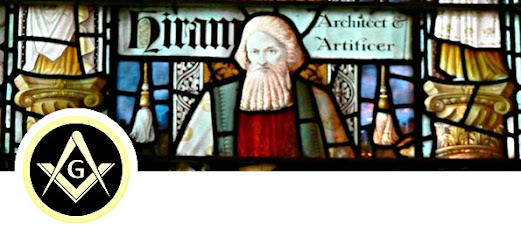
Articles les plus récents
LES SENTIERS D’HERMÈS







































